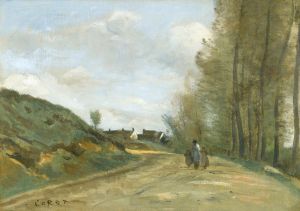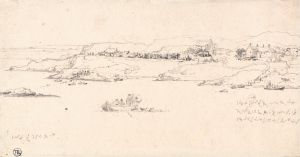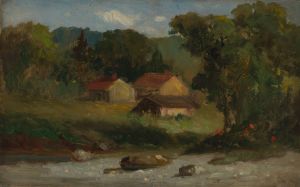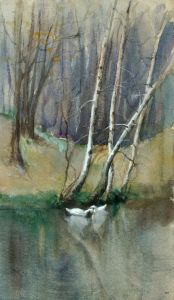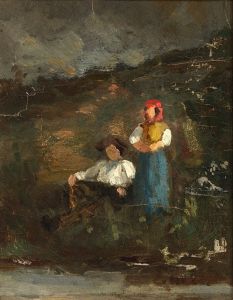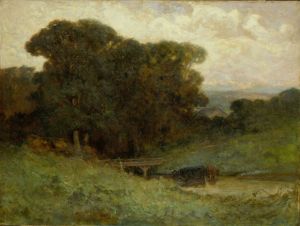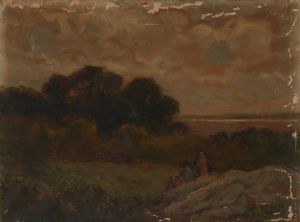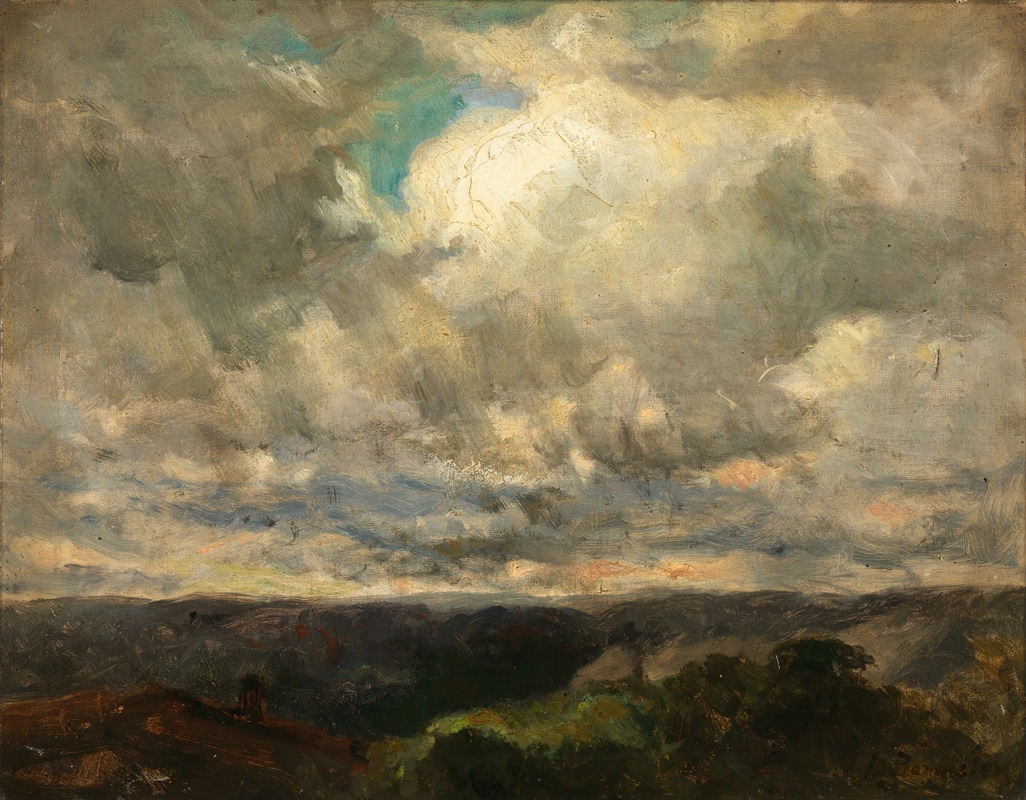
Untitled
A hand-painted replica of Edward Mitchell Bannister’s masterpiece Untitled, meticulously crafted by professional artists to capture the true essence of the original. Each piece is created with museum-quality canvas and rare mineral pigments, carefully painted by experienced artists with delicate brushstrokes and rich, layered colors to perfectly recreate the texture of the original artwork. Unlike machine-printed reproductions, this hand-painted version brings the painting to life, infused with the artist’s emotions and skill in every stroke. Whether for personal collection or home decoration, it instantly elevates the artistic atmosphere of any space.
Edward Mitchell Bannister was a prominent African American artist in the 19th century, known for his contributions to the American art scene during a time when racial barriers were significant. However, specific information about a painting titled "Untitled" by Edward Mitchell Bannister is not readily available in historical records or major art collections. Bannister's works, in general, are celebrated for their pastoral themes and adept use of the Barbizon style, which emphasizes naturalistic and atmospheric landscapes.
Bannister was born in 1828 in St. Andrews, New Brunswick, Canada, and later moved to the United States, where he became an influential figure in the Providence, Rhode Island art community. He was largely self-taught, drawing inspiration from the works of European masters and the natural beauty of the New England landscape. His career gained significant recognition after he won a bronze medal at the 1876 Philadelphia Centennial Exposition for his painting "Under the Oaks," which marked a pivotal moment in his career, as it was one of the first major awards given to an African American artist in the United States.
Bannister's style is characterized by a focus on serene landscapes, often depicting rural scenes with a sense of tranquility and harmony. His use of light and shadow, along with a soft, muted palette, reflects the influence of the Barbizon school, a movement that originated in France and emphasized realism and the beauty of the natural world. Bannister's works often convey a sense of peace and introspection, inviting viewers to appreciate the subtleties of nature.
Despite the challenges he faced due to racial prejudice, Bannister remained committed to his art and became a respected member of the Providence art community. He was a founding member of the Providence Art Club, one of the oldest art clubs in the United States, which provided a supportive environment for artists to collaborate and exhibit their work. Bannister's legacy is significant not only for his artistic achievements but also for his role in paving the way for future generations of African American artists.
While specific details about an "Untitled" painting by Bannister are not documented, his body of work continues to be studied and appreciated for its contribution to American art history. Bannister's paintings are held in various collections, including the Smithsonian American Art Museum and the Rhode Island School of Design Museum, where they continue to inspire and educate audiences about the rich history of African American art.
In summary, Edward Mitchell Bannister remains a key figure in the history of American art, celebrated for his dedication to his craft and his ability to transcend the racial barriers of his time through the universal language of art. His landscapes, imbued with a sense of calm and beauty, continue to resonate with viewers, offering a glimpse into the natural world as seen through the eyes of a pioneering artist.





